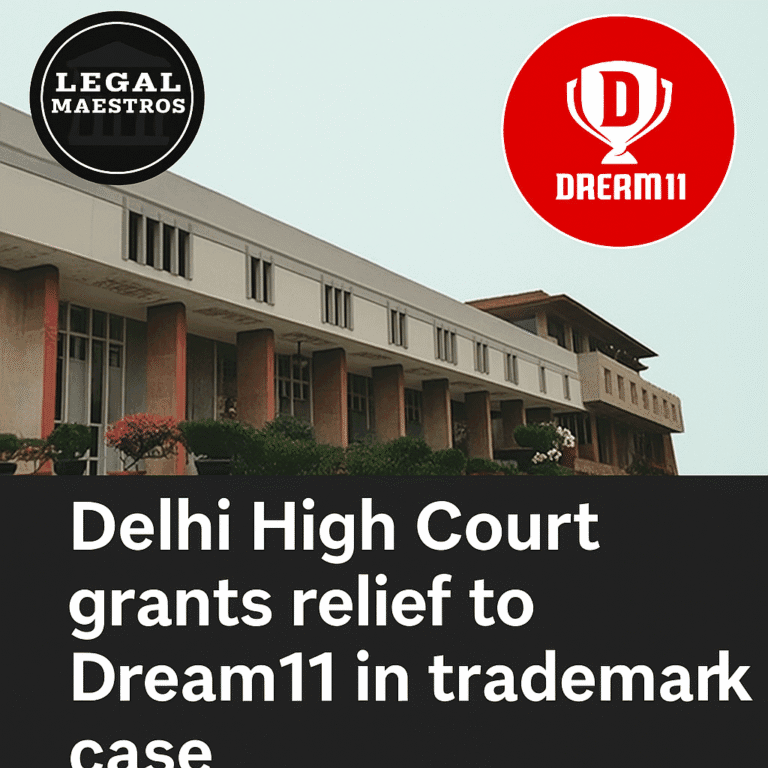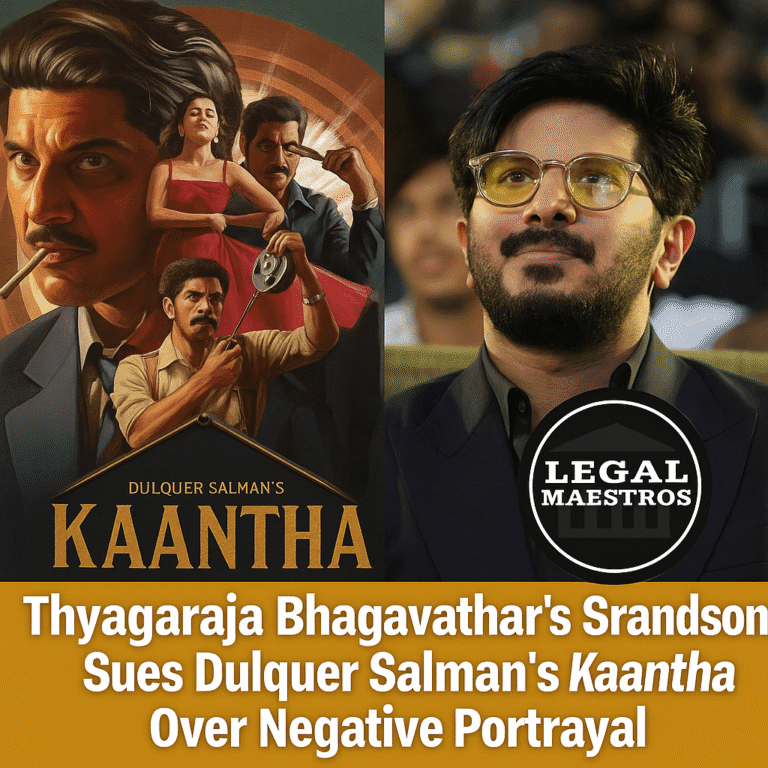
Supreme Court Bench of Justices Sanjay Karol and Ahsanuddin Amanullah Restores Criminal Proceedings in Corporate Fraud Involving Daechang Seat Automotive Pvt. Ltd.
Introduction
The Supreme Court of India rendered a significant ruling in the case Hyeoksoo Son v. Moon June Seok & Another, on April 8, 2025. The decision covered the extent of the High Court’s authority under Section 482 of the Code of Criminal Procedure, 1973 and whether it was appropriate in postponing criminal trials until before-trial. The lawsuit included grave claims of corporate fraud and criminal trust breach made by advisers and staff of a global automobile firm. Emphasizing the requirement of a complete trial when prima facie material exists, the Supreme Court defined the legal criteria for quashing charges.
Background and Brief Case Facts
The case started with a complaint made by Daechang Seat Automotive Pvt. LTD., a manufacturer of KIA vehicle car seat components. Based on erroneous representations made by its financial advisers and internal staff, the complaint claimed the company was deceived into paying over ₹10 crore under the premise of meeting GST obligations.
According to M/s N.K. Associates, the company’s chartered accountants, ₹9.73 crore of GST was due and that route such payments were customary in India. Following this advise, the business moved the money in several payments to accounts under N.K. Associates and a company known as Terminus. Later on it turned out that the GST department never received these payments.
For any queries or to publish an article or post or advertisement on our platform, do call at +91 6377460764 or email us at contact@legalmaestros.com.
An internal probe turned up evidence that the company Terminus shared an address with N.K. Associates and that important people linked to both companies had past professional ties to one another. Along with allegedly receiving ₹1.8 crore in cash from the main accused, Mr. Moon June Seok, a Korean national, CFO at the time was also accused of This resulted in a police inquiry, FIR registration, chargesheet filings under several Indian Penal Code sections—including Sections 406 (criminal breach of trust), 409 (breach of trust by a public servant or agent), 418 (cheating with knowledge), 420 (cheating), and 120B (criminal conspiracy).
Proceedings in Intervention of the Supreme Court and the High Court
Under Section 482 of the CrPC, respondent Moon June Seok went before the Karnataka High Court to have the criminal processes stopped. Declaring there was no prima facie evidence of misconduct, the High Court let the plea and dismissed the FIR and chargesheet against him. The High Court noted he just sent data to the Managing Director of the company and had no direct involvement in any financial theft.
Before the Supreme Court, the corporation contested this directive contending that the High Court had overreached its authority by prematurely assessing the veracity of claims. The complainant underlined that only a prima facie case is needed at the level of framing charges and that the High Court’s rejection of grave allegations devoid of a thorough investigation compromised the rule of law.
For any queries or to publish an article or post or advertisement on our platform, do call at +91 6377460764 or email us at contact@legalmaestros.com.
For More Updates & Regular Notes Join Our Whats App Group (https://chat.whatsapp.com/DkucckgAEJbCtXwXr2yIt0) and Telegram Group ( https://t.me/legalmaestroeducators )
Key Legal Provisions Topics Discussed
Examined was Section 482 of the Code of illegal Procedure, which gives the High Court authority to stop illegal activities to stop misuse of the judicial system. The courts have repeatedly maintained, therefore, that this authority should be used sparingly and only in cases where it is abundantly evident that none even on a prima facie basis is made out.
Section 409 of the Indian Penal Code—which addresses criminal breach of trust by a public officer, banker, merchant, or agent—was also cited by the Supreme Court Section 120B IPC on criminal conspiracy—which punishes those who arrange to carry out an illegal conduct in tandem with others—was another important clause.
For any queries or to publish an article or post or advertisement on our platform, do call at +91 6377460764 or email us at contact@legalmaestros.com.
Apart from this, the Court referenced accepted precedents such as State of Haryana v. Bhajan Lal (1992), which delineated seven extraordinary circumstances under which quashing of criminal proceedings could be warranted. These cover situations in which the complaint reveals no offense or in which claims are naturally dubious.
Supreme Court Finding
The Supreme Court attacked the High Court for closely reviewing the evidence and rendering decisions based as though it were running a trial. The highest court underlined that at this first stage the High Court was not meant to decide whether the accused was innocent or guilty. It should have instead just looked at whether, given the evidence on file, a prima facie case existed.
In this instance, the main accused and the CFO Moon June Seok had provided voluntary statements verifying the ₹1.8 crore cash transfer. The comments also matched their dates and locations, indicating a degree of cooperation fit for more investigation. The Court decided this sufficient to support the ongoing course of events.
For any queries or to publish an article or post or advertisement on our platform, do call at +91 6377460764 or email us at contact@legalmaestros.com.
The ruling also highlighted the dubious situation under which the CFO disclosed private financial data without official agreement and assigned others connected to the illegal activities. These facts, the Court concluded, are too severe to be disregarded or brushed aside without a full-scale trial.
The Court also considered the claim made by the respondent—that she was only a forwarding agent. It said that someone in the Chief Financial Officer post cannot claim to be a passive participant when over ₹10 crore had been transferred out of the company’s accounts depending on his actions or authorization.
Logic Against Early Termination of Criminal Trials
The Court underlined once more that criminal procedures shouldn’t be revoked just because the accused says she is innocent or denies any participation. The appropriate venue to examine the validity of claims is a criminal trial. Should the High Court start evaluating the validity of evidence at the level of charge sheet or FIR filing, it runs the danger of distorting the investigation and trial procedures.
For any queries or to publish an article or post or advertisement on our platform, do call at +91 6377460764 or email us at contact@legalmaestros.com.
The High Court was seen to have shown a lack of due care by misquoting the claimed bribe as ₹1.8 lakh instead of the real amount of ₹1.8 crore. The apex court said that the great sum of money involved, the accused’s professional positions, and the thorough records on file were all strong arguments for allowing the trial to go forward.
Summary and Effect of the Decision
The Supreme Court struck aside the High Court’s ruling, approved the appeal, and resumed the criminal trials under progress in Bengaluru under the III Additional Chief Metropolitan Magistrate. It let the prosecution go forward and pointed the parties toward showing before the trial court.
This judgment serves as a strong reminder that the authority of quashing under Section 482 CrPC is not meant to short-circuit criminal cases. Courts have to exercise caution particularly in cases involving financial fraud, fiduciary position abuse, and corporate misbehavior. The ruling makes it abundantly evident that claims of white-collar crime involving large sums of money have to be carefully investigated under appropriate judicial procedure rather than written off early on.
For any queries or to publish an article or post or advertisement on our platform, do call at +91 6377460764 or email us at contact@legalmaestros.com.



![JOB POST: Junior Associate at ASM Law Chambers, Jaipur [Freshers]](https://legalmaestros.com/wp-content/uploads/2025/11/Gemini_Generated_Image_8wrxer8wrxer8wrx-768x708.png)

